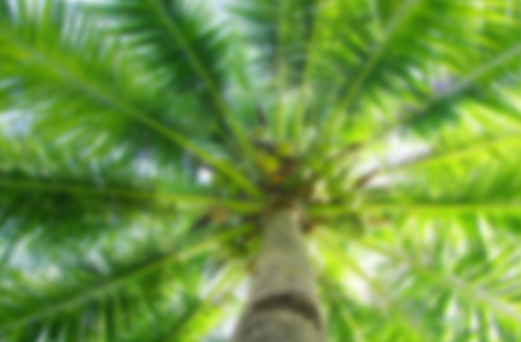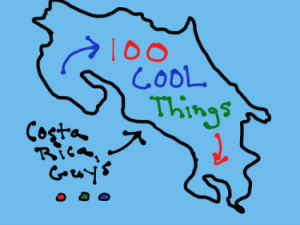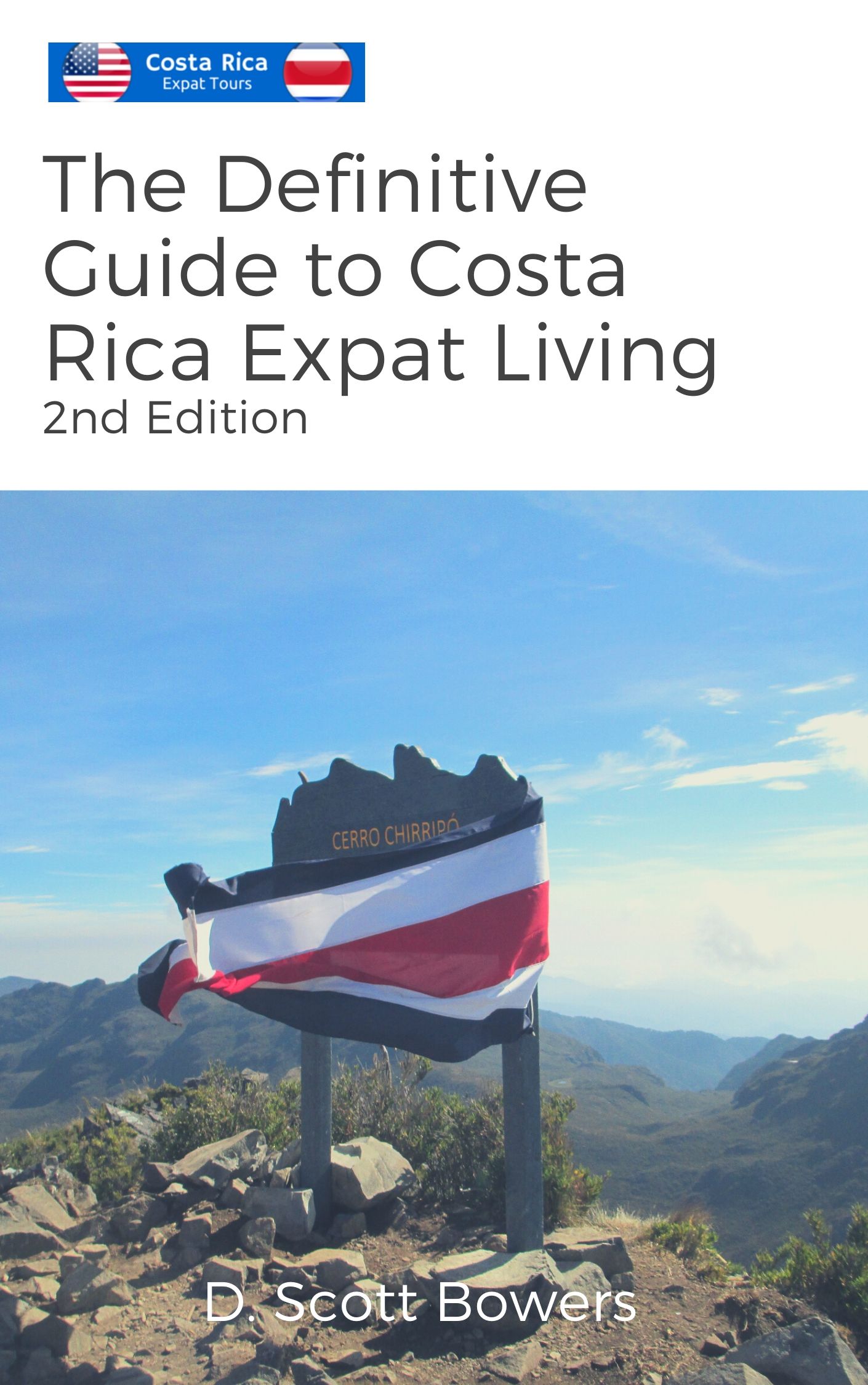 Costa Rica has many tiny islands that tourists can visit, but the two most important and larger islands are Cocos and Caño. I hope to write about the former one day. It was recently in the running for being one of the seven natural wonders of the world and is a place that Jacques Cousteau called, “the most beautiful island in the world.” Problem is that it is so far out in the Pacific that it takes a three day journey over open water. The entire trip will set you back about three grand. So maybe one day I will get to swim with the whale sharks of Cocos. I did get to visit Isla del Caño recently. It is located a couple hours off the Southern Pacific coast. The waters around the island are very famous because they are a very important migratory route for one of the largest animals in existence, the humpback whale (or “jorobada” in Spanish). Imagine a creature that is some ten times the size of an elephant leaping and clearing the surface of the water so that you can see its entire body! Unfortunately we did not see any whales the day I made the trip to the island. We did see quite a few spotted dolphins, another marine animal that is common to the area (along with several other species of dolphins). Maybe next time. It was the right time of the year, however, to see the whales, which is the period that extends from the beginning of January to April. Caño is also famous because surrounding it is one of Costa Rica’s most important coral reefs (the other being located in the Southern Caribbean). Diving and snorkeling is very popular in the area. I didn’t get to dive the day I went, but I did snorkel. The water is crystal clear and the marine life abounds. I saw an amazing variety of fish, including an immense school of some species I could not identify that followed me like a cloud reacting in unison to my every move. The island is spectacularly beautiful and virgin. It is completely uninhabited with the exception of the birds, reptiles and small mammals that call it home. We hiked up to one of the highest points, which featured an amazing view out to the open Pacific. The island vegetation was green and lush with many ancient trees towering above the narrow path through the selva. There is also an archaeological site where you can see a couple of the ancient stone spheres that have baffled experts. Why and how did the ancient indigenous people of Costa Rica make such perfect orbs out of solid rock? On the trip back we searched hard to spot a whale, but to no avail. The captain did, however, give us a treat by taking us to a location off the mainland shore that consists of rocky cliffs dotted by a series of caves. The area is known locally as “las cavernas,” or the caves. The captain actually “threaded the needle” by taking us right through one of them. Costa Rica is truly a land of so many wonders. I have seen many of them over my years here, but still there are many I have yet to see. I can now scratch Isla del Caño off that list, although I can’t wait to return again. I highly recommend a trip there. A good way to do it is to combine it with a visit to Corcovado National Park. You can also visit the Marino Ballena National Park, while you are in the area, which features the famous Punta Uvita where the coastline forms the shape of a whale’s tail. And, of course, Package Costa Rica can set it all up for you!
Costa Rica has many tiny islands that tourists can visit, but the two most important and larger islands are Cocos and Caño. I hope to write about the former one day. It was recently in the running for being one of the seven natural wonders of the world and is a place that Jacques Cousteau called, “the most beautiful island in the world.” Problem is that it is so far out in the Pacific that it takes a three day journey over open water. The entire trip will set you back about three grand. So maybe one day I will get to swim with the whale sharks of Cocos. I did get to visit Isla del Caño recently. It is located a couple hours off the Southern Pacific coast. The waters around the island are very famous because they are a very important migratory route for one of the largest animals in existence, the humpback whale (or “jorobada” in Spanish). Imagine a creature that is some ten times the size of an elephant leaping and clearing the surface of the water so that you can see its entire body! Unfortunately we did not see any whales the day I made the trip to the island. We did see quite a few spotted dolphins, another marine animal that is common to the area (along with several other species of dolphins). Maybe next time. It was the right time of the year, however, to see the whales, which is the period that extends from the beginning of January to April. Caño is also famous because surrounding it is one of Costa Rica’s most important coral reefs (the other being located in the Southern Caribbean). Diving and snorkeling is very popular in the area. I didn’t get to dive the day I went, but I did snorkel. The water is crystal clear and the marine life abounds. I saw an amazing variety of fish, including an immense school of some species I could not identify that followed me like a cloud reacting in unison to my every move. The island is spectacularly beautiful and virgin. It is completely uninhabited with the exception of the birds, reptiles and small mammals that call it home. We hiked up to one of the highest points, which featured an amazing view out to the open Pacific. The island vegetation was green and lush with many ancient trees towering above the narrow path through the selva. There is also an archaeological site where you can see a couple of the ancient stone spheres that have baffled experts. Why and how did the ancient indigenous people of Costa Rica make such perfect orbs out of solid rock? On the trip back we searched hard to spot a whale, but to no avail. The captain did, however, give us a treat by taking us to a location off the mainland shore that consists of rocky cliffs dotted by a series of caves. The area is known locally as “las cavernas,” or the caves. The captain actually “threaded the needle” by taking us right through one of them. Costa Rica is truly a land of so many wonders. I have seen many of them over my years here, but still there are many I have yet to see. I can now scratch Isla del Caño off that list, although I can’t wait to return again. I highly recommend a trip there. A good way to do it is to combine it with a visit to Corcovado National Park. You can also visit the Marino Ballena National Park, while you are in the area, which features the famous Punta Uvita where the coastline forms the shape of a whale’s tail. And, of course, Package Costa Rica can set it all up for you!








Comments
Costa Rica Blog - 365 Reasons I Love Costa Rica » Blog Archive » Reason #73: The “Big Sur” of Costa Rica
[…] you could want at the beach. There are great surf spots, the best diving in the country around Caños Island, white sand beaches and lots and lots of nature. The wildlife in the area is renowned with Lapas […]
How to do the Osa Peninsula • Package Costa Rica
[…] make that choice. There are some differences. Drake Bay has the advantage of being very close to Isla del Caño. This is an uninhabited island about half hour off the coast from Drake Bay that is surrounded by a […]